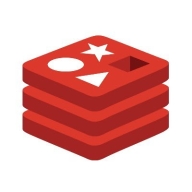

Oracle NoSQL Database Cloud and Redis are competitors in the database management sector. Oracle NoSQL holds an advantage in enterprise data management with seamless Oracle integration, while Redis shines in high-speed and agility for in-memory processing.
Features: Oracle NoSQL Database Cloud provides strong consistency, ACID transactions, and seamless Oracle application integration. Redis provides in-memory storage, various data structure support, and exceptional speed. The key difference is Oracle's focus on enterprise data management, whereas Redis focuses on real-time processing agility.
Ease of Deployment and Customer Service: Oracle NoSQL Database Cloud integrates smoothly within Oracle environments with extensive support. Redis offers flexible deployment from cloud to on-premises with community backing and thorough documentation.
Pricing and ROI: Oracle NoSQL Database Cloud has higher initial costs due to enterprise features, promising ROI through Oracle integration. Redis offers cost efficiency as an open-source solution, with fast ROI from reduced latency and enhanced performance.
| Product | Market Share (%) |
|---|---|
| Redis | 2.8% |
| Oracle NoSQL Database Cloud | 1.6% |
| Other | 95.6% |

| Company Size | Count |
|---|---|
| Small Business | 11 |
| Midsize Enterprise | 3 |
| Large Enterprise | 8 |
A scale-out, low latency key-value database service including support for JSON and Table data types. Built-in high availability, transactions, parallel query, and more.
Redis offers high-speed, in-memory storage, renowned for real-time performance. It supports quick data retrieval and is used commonly in applications like analytics and gaming.
Renowned for real-time performance, Redis delivers high-speed in-memory storage, making it a favorite for applications needing quick data retrieval. Its diverse data structures and caching capabilities support a broad array of use cases, including analytics and gaming. Redis ensures robust scalability with master-slave replication and clustering, while its publish/subscribe pattern renders it reliable for event-driven applications. The solution integrates smoothly with existing systems, minimizing performance tuning needs. Although documentation on scalability and security could be improved, Redis remains cost-effective and stable, commonly utilized in cloud environments. Enhancing integration with cloud services like AWS and Google Cloud and refining GUI may improve usability.
What are the key features of Redis?Redis finds application across industries for tasks like caching to improve application performance and speed, minimizing database load. It enables real-time processing for session storage, push notifications, and analytics. As a messaging platform, Redis handles high traffic and supports replication and clustering for cross-platform scalability.
We monitor all Managed NoSQL Databases reviews to prevent fraudulent reviews and keep review quality high. We do not post reviews by company employees or direct competitors. We validate each review for authenticity via cross-reference with LinkedIn, and personal follow-up with the reviewer when necessary.